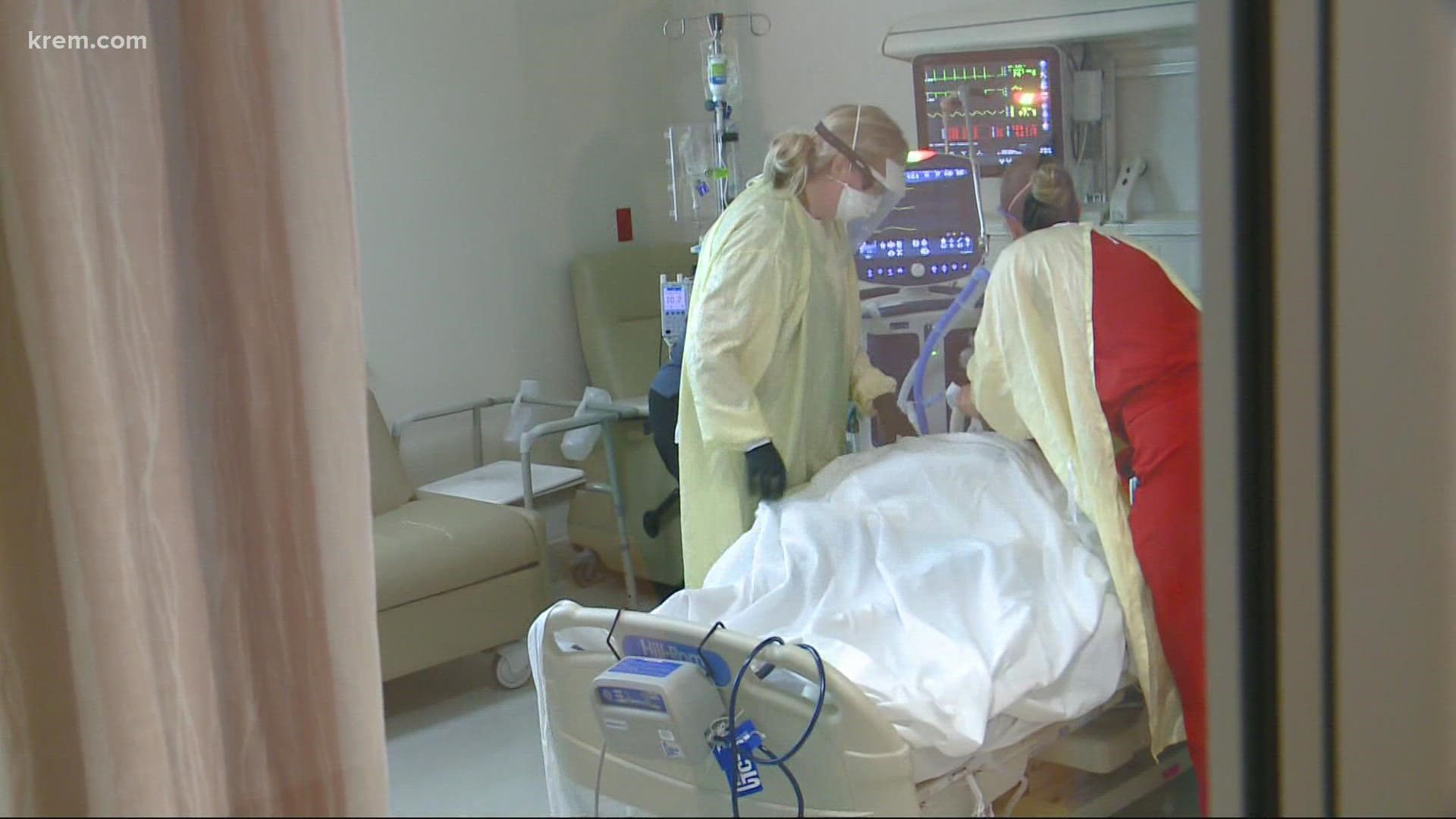SPOKANE, Wash. — A recently released study by the Washington State Hospital Association found that 6,100 registered nurses are needed to fill all vacancies in hospitals across the state.
The study surveyed 80 hospitals that make up 85 percent of the state's hospital beds. The impact of the shortage is being felt by hospitals in Spokane, and while the pandemic exacerbated these issues, it didn't create the shortage.
"We're not unlike any other health care organization throughout our entire nation. There's really a workforce and staffing crisis at all levels of talent," said Staci Taylor, who serves as the Chief Human Resources Officer for Providence. "As you know, it's been really scarce in healthcare for 10 years, and honestly, it's just getting worse."
Taylor said Providence has seen 25 percent less applicants for open positions this year as compared to 2019. Some of the reasons Taylor gave for the openings are nurses leaving due to burnout, early retirement and opportunities to become travel nurses.
These staffing issues aren't limited to just health care providers.
"We have had pretty consistent enrollment for a number of years, but not any growth of enrollment,' said Anne Mason, the Associate Dean of Academic Affair at the Washington State University College of Nursing in Spokane.
She also said the school is actually turning away qualified applicants because they just can't handle anymore students.
"In fact, every year, we have a really significant number of very qualified applicants that we cannot admit, because we don't have the faculty resources and the clinical placement resources to educate them," she said.
WSU currently graduates 266 nursing students on average each year, said Director of Outreach and Commuications Addy Hatch.
Mason said that other nursing schools in the area have expressed similar concerns during meetings. At WSU, she said ideas such as simulated clinical opportunities and offering hiring incentives to attract nurses to transition to teaching are being considered. Currently, faculty salaries are lower than those being offered by hospitals.
Taylor said Providence is working with colleges and even high school to help out the staffing situation by garnering interest in health care positions. But even with their best efforts, Taylor said the staffing shortage could take a couple years to fix at least.
"I wish I had the crystal ball to know. But honestly, I think we're really in it for the long haul," Taylor said. "This is a long game, it's going to be a marathon until we get out of what we're calling the staffing crisis."

